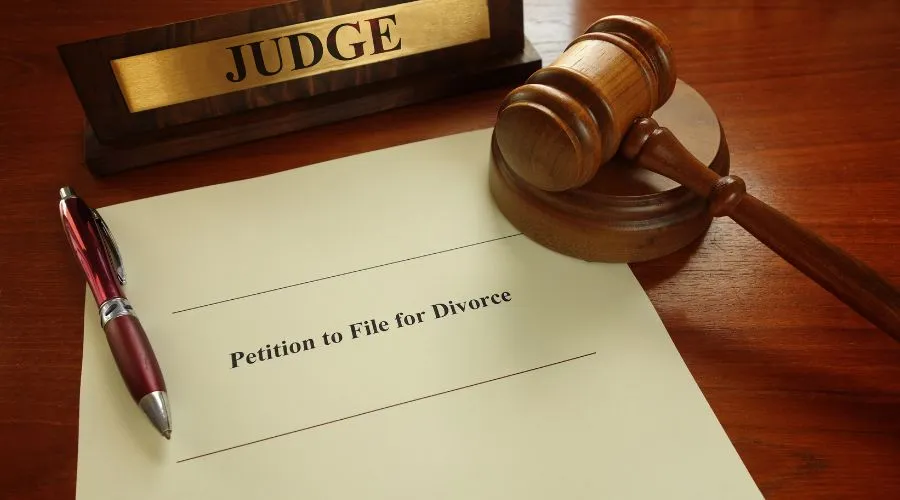Going through a divorce is never easy, but understanding the legal process from a divorce lawyer can help ease some of the stress. If you’re in New Jersey, and thinking about filing for divorce, it’s important to know the steps involved and what you can expect. In this blog, we’ll break down the legal process and give you some insight into what to expect when navigating divorce in this part of New Jersey.
Residency Requirements for Divorce in NJ
Before diving into the paperwork, it’s essential to understand New Jersey’s residency requirements. In order to file for divorce in the Garden State, one of the spouses must meet the following criteria:
- At least one spouse must be a resident of New Jersey for at least 12 consecutive months before filing for divorce.
- Alternatively, if the grounds for divorce occurred in New Jersey, you can file for divorce even if you’ve only lived in the state for a short time. However, this is a bit more complicated, and you may want to consult a divorce lawyer to make sure you’re eligible.
If you’ve met this residency requirement, you’re good to go ahead and start the divorce process in Hackensack! Make sure to get in touch with a reputable divorce lawyer to speed up your process and to ensure you do not forget any vital step.

How to File for Divorce in New Jersey
Filing for divorce can seem like a daunting task, but breaking it down into manageable steps can help you stay on track. Here’s what you need to know about how to file for divorce in Hackensack:
- Choose Your Grounds for Divorce
In New Jersey, you can file for a no-fault divorce or a fault-based divorce. The most common no-fault grounds are:
- Irreconcilable Differences: This is when you and your spouse have been separated for at least 6 months, or you no longer have a functioning relationship.
- Separation: If you and your spouse have lived apart for 18 months, this can be used as grounds for divorce.
- File the Complaint for Divorce
You’ll need to file a Complaint for Divorce with the Superior Court of New Jersey in Bergen County, where Hackensack is located. You’ll also need to pay the required filing fee, which varies but is usually around $300. The complaint is essentially a formal request for a divorce and outlines the grounds for your petition. If you find this process tedious, you can always get the support and assistance of a divorce lawyer.
- Serve Your Spouse
Once you file your complaint, your spouse must be formally notified. This is called “service of process.” You can have a third party (like a process server) deliver the paperwork, or if your spouse agrees, they can accept the documents voluntarily.
- Wait for a Response
After your spouse has been served, they have 35 days to respond to the complaint. If they don’t respond, you may be able to proceed with an uncontested divorce. If they do respond, you’ll need to move forward with the divorce proceedings, which may include negotiating a settlement or going to court.
- Financial Disclosures and Discovery
During the divorce process, both spouses will need to disclose their financial information. This can include income, assets, debts, and any other relevant information. This step is crucial for ensuring fair division of property and spousal support (if applicable). If the relationship between you and your partner isn’t good, you can get in touch with a divorce lawyer who can mediate the transaction between the two of you.
- Settlement or Trial
If you and your spouse can agree on key issues like property division, child custody, and support, you may be able to settle out of court through mediation or negotiation. However, if you can’t come to an agreement, the case may go to trial, where a judge will make the final decisions for you. When things become too much or more things are at stake, it’s advisable to get a good divorce lawyer who can represent you during the discussions.
Common Challenges According to a Divorce Lawyer
While the process of filing for divorce in Hackensack may be straightforward, there are common challenges that many people face along the way. Let’s take a look at a few that’s frequently encountered by divorce lawyers:
- Emotional Stress
Divorce is emotionally taxing, no matter the circumstances. The end of a marriage brings up a lot of complex feelings. Having a strong support system, whether through family, friends, or a counselor, can make a huge difference during this time.
- Child Custody and Support
If you and your spouse have children, custody arrangements and child support can be one of the most contentious parts of a divorce. New Jersey courts prioritize the best interests of the child, which may mean that the custody arrangement is not exactly what either parent initially wanted. It’s important to stay focused on what’s best for your kids rather than getting caught up in a battle.
- Dividing Assets
New Jersey is an equitable distribution state, meaning that property and assets are divided fairly, but not necessarily equally. This can lead to disputes over what is considered “fair.” If you and your spouse can’t agree on how to divide your assets, the court may step in to make decisions and a divorce lawyer may be needed to keep things in check.
- Spousal Support
In some cases, one spouse may be entitled to receive alimony or spousal support. Factors like the length of the marriage, each spouse’s financial standing, and the standard of living during the marriage will be considered in determining whether alimony is appropriate.
- Legal Costs
Divorce can be expensive, especially if you and your spouse don’t agree on important issues and end up going to trial and needing to hire divorce lawyers to keep everything in check. Keep in mind that some costs can be mitigated through mediation or uncontested divorces, so it’s always worth considering alternative dispute resolution methods before going to court.
Final Thoughts
Filing for divorce in Hackensack, NJ, may feel overwhelming, but breaking the process down into clear steps can help you manage it. Whether you’re navigating the legal paperwork, dealing with emotional challenges, or working through complicated custody or financial issues, it’s important to stay informed and reach out for support when needed.
Consider speaking with an experienced divorce attorney who can help guide you through the legal steps, protect your interests, and ensure the process goes as smoothly as possible. You don’t have to do this alone—there are resources available to help you through this challenging time and divorce lawyers who can help smooth out everything.





